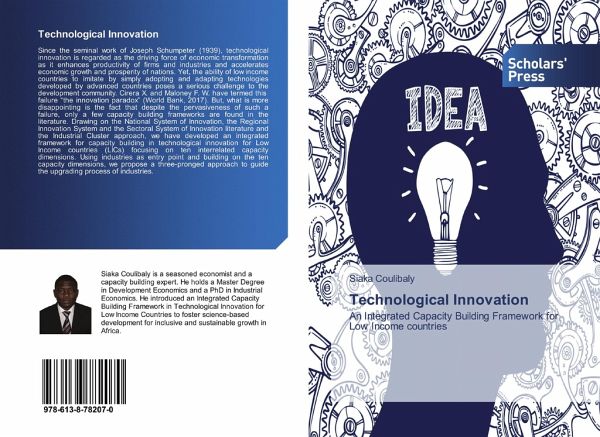
Technological Innovation
An Integrated Capacity Building Framework for Low Income countries
Versandkostenfrei!
Versandfertig in 6-10 Tagen
40,99 €
inkl. MwSt.

PAYBACK Punkte
20 °P sammeln!
Since the seminal work of Joseph Schumpeter (1939), technological innovation is regarded as the driving force of economic transformation as it enhances productivity of firms and industries and accelerates economic growth and prosperity of nations. Yet, the ability of low income countries to imitate by simply adopting and adapting technologies developed by advanced countries poses a serious challenge to the development community. Cirera X. and Maloney F. W. have termed this failure "the innovation paradox" (World Bank, 2017). But, what is more disappointing is the fact that despite the pervasiv...
Since the seminal work of Joseph Schumpeter (1939), technological innovation is regarded as the driving force of economic transformation as it enhances productivity of firms and industries and accelerates economic growth and prosperity of nations. Yet, the ability of low income countries to imitate by simply adopting and adapting technologies developed by advanced countries poses a serious challenge to the development community. Cirera X. and Maloney F. W. have termed this failure "the innovation paradox" (World Bank, 2017). But, what is more disappointing is the fact that despite the pervasiveness of such a failure, only a few capacity building frameworks are found in the literature. Drawing on the National System of Innovation, the Regional Innovation System and the Sectoral System of Innovation literature and the Industrial Cluster approach, we have developed an integrated framework for capacity building in technological innovation for Low Income countries (LICs) focusing on ten interrelated capacity dimensions. Using industries as entry point and building on the ten capacity dimensions, we propose a three-pronged approach to guide the upgrading process of industries.












